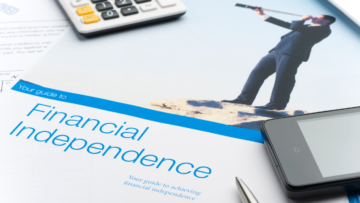Expected or unexpected, volatile stock markets are causing a great amount of anxiety among retirees. In fact, a recent American College survey (of retirement income professionals) showed that over 60% of their clients were concerned about the recent market volatility and that the recent volatility significantly increased their clients’ concerns about retirement security.
We can help steady your concerns during worrying market trends and give you advice at the best course of action to take; with the ultimate goal of protecting your retirement security. Let’s take a look at some planning strategies that retirees can use to minimize the impact of volatile markets on a retirement income plan.
1. Getting the right help
A recent Schwab survey found that 70% of participants said they’d feel more confident in their ability to make the right investment decisions if they enlisted the help of a financial professional. Market volatility can understandably cause panic, and while endless research and advice from loved ones may feel beneficial, don’t risk making a bad decision that could severely cost you.
You should develop a strategy based on your personal situation and risk tolerance while focusing on your long-term goals. Make sure you’re taking advantage of important plan features like professional investment advice from CKS Summit Group.
2. Revisit and diversify
Never put all your eggs in one basket. Diversify your portfolio across different asset classes and types of securities, and you’ll have something to fall back on when part of your retirement plan takes a hit. By using a combination of investment and insurance products, such as annuities and bonds, you can help provide a general peace of mind during volatile markets as you know your basic expenses will be met.
3. Do not try to time the market
Try as you might, you’re probably never going time entering and exiting stocks to your benefit, and attempting to do so could get expensive. It’s nice to think that you could avoid the bad days and invest during the good ones, unfortunately, it is impossible to consistently predict when those good and bad days will happen. And if you miss even a few of the best days, it can have a lingering effect on your portfolio.
Research studies from independent research firm Morningstar show that the decisions investors make about when to buy and sell funds cause those investors to perform worse than they would have had the investors simply bought and held the same funds. So investors should realize that, over the short term, no one can consistently predict the direction of the stock market.
4. Cash Reserves
Cash has a negative return over time, so investors can overlook it. But maintaining an emergency fund and keeping a cash position in your portfolio can help you wait out a down market or take advantage of dipping prices. Emergency funds allow you to get through non-expected disasters or surprises without having to sell off your assets, triggering taxes and potentially at times not favorable to your best interest.
However, the biggest issue with cash reserves is determining how much money is appropriate to hold in cash and not have saved in higher return investments. Unfortunately, holding a year or two of expenses in cash will likely hurt you in the long run as you give up too much investment potential by holding that much cash. Therefore, a few months in cash or cash equivalents could help you get through a few months of volatile markets.
We’re here to help
Stock market volatility is inevitable. If you’re worried about the impact of volatility on your retirement savings, give CKS Summit Group a call at 586-286-5820 to talk about how we can help guard against this risk and strengthen your retirement strategies. Alternatively why not set up a complimentary strategy session with a CKS retirement income expert? We look forward to hearing from you.



